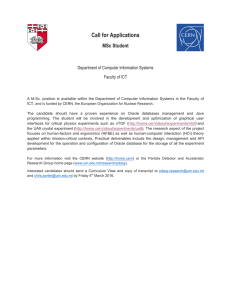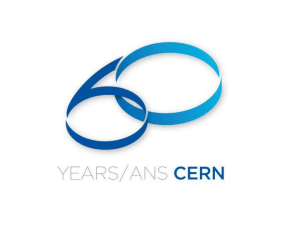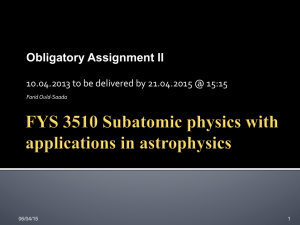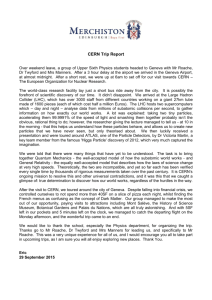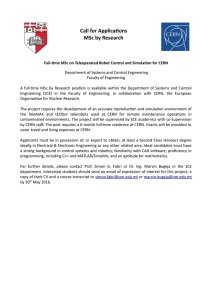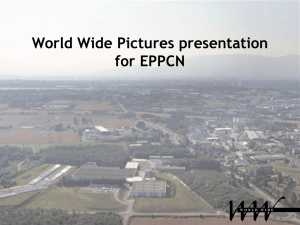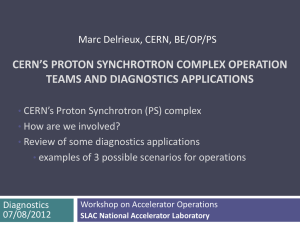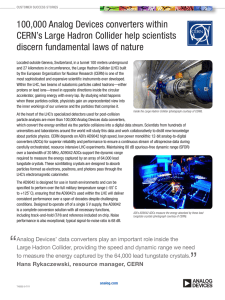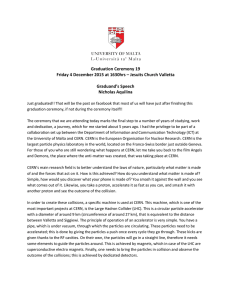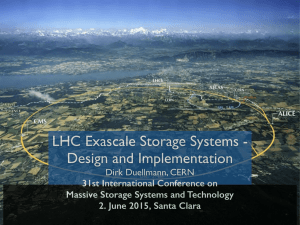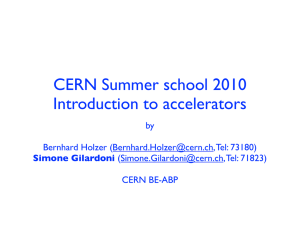Summer Studentships at CERN 2014
advertisement
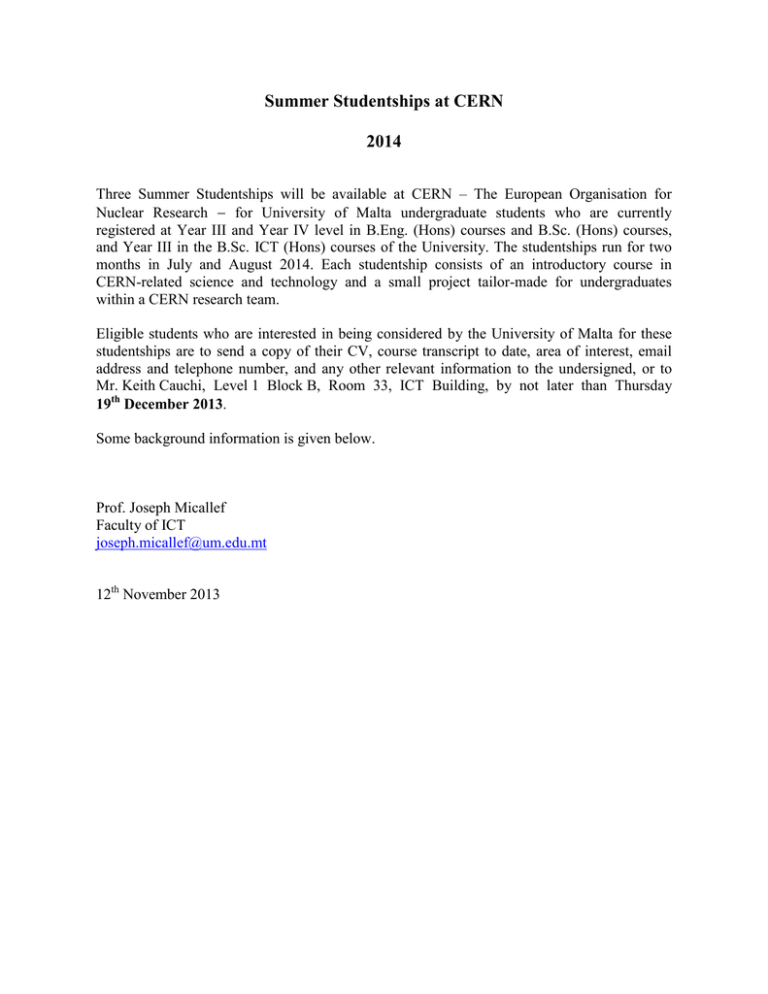
Summer Studentships at CERN 2014 Three Summer Studentships will be available at CERN – The European Organisation for Nuclear Research for University of Malta undergraduate students who are currently registered at Year III and Year IV level in B.Eng. (Hons) courses and B.Sc. (Hons) courses, and Year III in the B.Sc. ICT (Hons) courses of the University. The studentships run for two months in July and August 2014. Each studentship consists of an introductory course in CERN-related science and technology and a small project tailor-made for undergraduates within a CERN research team. Eligible students who are interested in being considered by the University of Malta for these studentships are to send a copy of their CV, course transcript to date, area of interest, email address and telephone number, and any other relevant information to the undersigned, or to Mr. Keith Cauchi, Level 1 Block B, Room 33, ICT Building, by not later than Thursday 19thDecember2013. Some background information is given below. Prof. Joseph Micallef Faculty of ICT joseph.micallef@um.edu.mt 12th November 2013 CERN Summer Student Programme The European Organisation for Nuclear Research (CERN) is an international organisation that performs non-military fundamental research. It is situated on the Franco-Swiss border close to Geneva. Since 1954, its model for cooperation, has become a shining example of international collaboration world-wide bringing together 6500 top-notch physicists, engineers and computer scientists from over 500 institutions of over 80 countries. It is the largest laboratory of its kind in the world and it is currently building the largest and most powerful scientific instrument ever constructed by mankind; a particle accelerator known as the Large Hadron Collider (LHC). The LHC is 27 km long and will act like a giant microscope to understand better the laws of nature, particularly the composition of matter and the forces that act on it. It is a scientific colossus which started in 1982 and was launched in 2008 and is not only a scientific and political challenge but a financial one too: in total the LHC will cost around 6.5 billion Euros. This cutting edge technology may have profound implications in physics, engineering, computing and medicine ranging from the infinitely small (nanotechnology) to the infinitely large (cosmology). For the fifth year running, CERN is offering Maltese nationals to participate in the CERN Summer Student Programme. This programme offers undergraduate students of physics, computing and engineering a unique opportunity to follow a specialised lecture series and to join in the day-to-day work of research teams participating in experiments at CERN. Beyond the outstanding first-class scientific value of their stay, the selected students will find working in a multidisciplinary and multicultural environment an extremely enriching personal experience. It is a once-in-a-lifetime opportunity to make valuable and long-lasting contacts with other students and scientists from all over Europe. Aerial view of CERN and the surrounding region. 3 rings are drawn to show the position of the accelerator complex situated underground. The small ring shows the position of the Proton Synchrotron with a circumference of 600 m, the middle ring is the Super Proton Synchrotron with a circumference of 7 km and the largest ring is the LHC. The Geneva Lake and the Geneva airport can be seen on the right whilst the Jura Mountains can be seen on the left.
